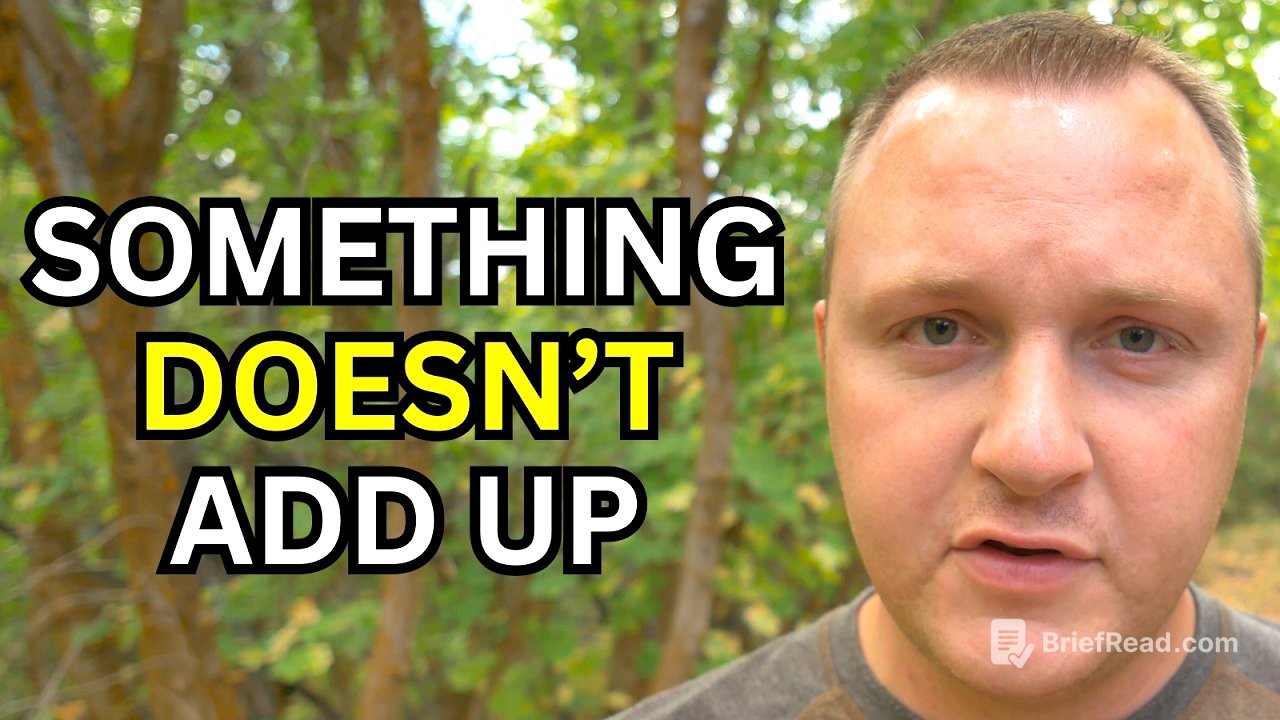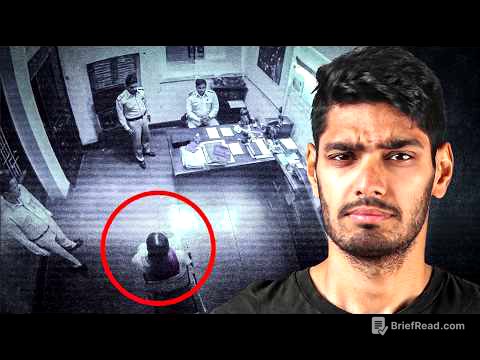TLDR;
The video discusses Russia's recent drone incursion into Poland and argues that it's a deliberate attempt to distract NATO and divert military resources away from Ukraine. Russia aims to exploit fears within NATO countries, prompting them to prioritize their own defense over supporting Ukraine, thereby weakening Ukraine's ability to resist Russian aggression. The video also touches on the rapid technological advancements in warfare and the risk of stockpiling outdated weapons.
- Russia's drone incursions into NATO countries are a calculated strategy to divert military resources from Ukraine.
- Russia aims to exploit fears within NATO countries, prompting them to prioritize their own defense over supporting Ukraine.
- Rapid technological advancements in warfare risk rendering stockpiled weapons obsolete.
- NATO should call Russia's bluff and provide Ukraine with the necessary weapons to defend itself, preventing a larger conflict.
Russia's Intentional Provocations [0:00]
Russia's recent drone incursion into Poland is likely not accidental, given the flight path and depth of penetration. The speaker believes Russia is intentionally provoking NATO countries to distract from the war in Ukraine. By creating small threats, Russia hopes to make these countries allocate more resources to their own defense, thus reducing support for Ukraine. This strategy aims to weaken Ukraine's resistance by limiting the flow of military supplies from NATO.
Common Sense Analysis of Russia's Actions [2:50]
Russia's drone incursions are not intended to gain military advantages within NATO countries, as the forces used are too small to achieve anything meaningful and would provoke a significant response. The speaker disagrees with the theory that these actions are probes to test NATO's response, arguing that Russia already understands NATO's likely reaction. Russia's military is currently focused on Ukraine and cannot afford a war against NATO.
Undermining Propaganda and Provoking Responses [4:38]
The drone incursions undermine Russia's own propaganda that NATO is an aggressive alliance seeking to attack Russia. If Russia truly believed this, they would not risk sending drones into NATO territory, as it could trigger Article 5 and lead to Russia's destruction. Instead, Russia is trying to provoke a specific response: to reduce military pressure on themselves in Ukraine. They aim to prevent Ukraine from receiving a large influx of weapons from NATO countries, which could lead to Russia's defeat.
Historical Precedent and Asymmetric Warfare [7:25]
Russia's strategy is not new. Earlier in the war, when NATO countries were providing tanks and armored vehicles to Ukraine, Russia began building new military bases along its borders with NATO countries. These bases were largely empty shells, but they created fear within NATO countries, leading to reduced support for Ukraine. This is an example of asymmetric warfare, where Russia invests minimal resources to effectively eliminate Ukraine's military equipment by preventing it from reaching the front lines.
Information War and the Reality of the Conflict [8:39]
Despite its subpar military performance, Russia excels in information warfare and propaganda. It understands how isolated events can alter public consciousness in a way that benefits them. It's unlikely that Russia will attack a NATO country in the near future, as they are currently unable to advance in Ukraine. However, Russia will feign the possibility of attacking NATO to deter intervention in the war in Ukraine.
Technological Shift in Warfare [10:10]
Many countries are stockpiling outdated technology out of fear, but this technology may become irrelevant due to rapid advancements in drone warfare, AI weapons, and robotics. Weapons sitting in stockpiles risk becoming obsolete. This technological shift is similar to the one that occurred during World War I, where outdated tactics and equipment became useless.
Calling Russia's Bluff and Investing in Ukraine's Defense [12:07]
NATO should call Russia's bluff and send Ukraine the weapons it needs today to avoid a larger war tomorrow. Russia is afraid of NATO weapons going to Ukraine and will not attack a NATO country while engaged in the war against Ukraine. An investment in Ukraine's defense is an investment in Europe's own defense. Providing Ukraine with anti-aircraft missiles is more effective than stockpiling them for a theoretical future attack.
Collective Defense and Russia's Goal [13:36]
Russia knows that Europe is not thinking in terms of collective defense and seeks to promote division. The more countries focus on their own defense instead of Ukraine's, the more Russia wins. Russia's goal is to keep everyone divided, as a united, free, and democratic world would easily defeat Russia.









